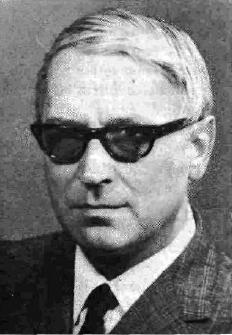
Taja Kramberger is a Slovenian poet, translator, essayist and historical anthropologist from Slovenia. She lives in France.

Simon Jenko was a Slovene poet, lyricist and writer.

Ivan Cankar was a Slovene writer, playwright, essayist, poet, and political activist. Together with Oton Župančič, Dragotin Kette, and Josip Murn, he is considered as the beginner of modernism in Slovene literature. He is regarded as the greatest writer in Slovene, and has sometimes been compared to Franz Kafka and James Joyce.

Tomaž Šalamun was a Slovenian poet who was a leading figure of postwar neo-avant-garde poetry in Central Europe and an internationally acclaimed absurdist. His books of Slovene poetry have been translated into twenty-one languages, with nine of his thirty-nine books of poetry published in English. His work has been called a poetic bridge between old European roots and America. Šalamun was a member of the Slovenian Academy of Sciences and Arts. He lived in Ljubljana, Slovenia, and was married to the painter Metka Krašovec.

Jakob Savinšek was a Slovene sculptor, illustrator, and poet.

Jože Javoršek was the pen name of Jože Brejc, a Slovenian playwright, writer, poet, translator and essayist. He is regarded as one of the greatest masters of style and language among Slovene authors. A complex thinker and controversial personality, Javoršek is frequently considered, together with the writer Vitomil Zupan, as the paradigmatic example of the World War II and postwar generation of Slovene intellectuals.
Dušan Pirjevec, known by his nom de guerre Ahac, was a Slovenian Partisan, literary historian and philosopher. He was one of the most influential public intellectuals in post–World War II Slovenia.
Sodobnost is a Slovenian literary and cultural magazine, established in 1933. It is considered the oldest of currently existing literary magazines in Slovenia. Although Sodobnost has traditionally been a magazine focused on cultural and literary issues, it nowadays covers a wide range of current affairs. It is part of the Eurozine editorial project.

Kajetan Kovič was a Slovene poet, writer, translator, and journalist. In 1978, he received the Prešeren Award, the highest artistic award in Slovenia, for his poetry collection Labrador.
The Slovene Writers' Association is a non-profit association of Slovene writers based in Ljubljana.

Milan Jesih is a Slovene poet, playwright, and translator. He was the president of the Slovene Writers' Association between 2009 and 2011.
The Jenko Award is a literary award in Slovenia awarded each year for the best poetry collection in Slovene published in the previous two years. It has been bestowed since 1986 by the Slovene Writers' Association. It is named after the 19th-century Slovene poet Simon Jenko.
Andrej Medved is a Slovene poet, editor and translator. He has published numerous poetry collections.
Ciril Bergles was a Slovene poet, essayist and translator. He published numerous collections of poetry and was also known for his translations of poetry, mostly by Spanish and South American authors, into Slovene.

Brane Mozetič is a Slovene poet, writer, editor and translator. He is known for his homoerotic poetry, his editorial work and his translations of works by Rimbaud, Genet and Foucault into Slovene.
Uroš Zupan is a Slovene poet and translator. He has published numerous collections of poetry and his poetry has also been translated into German, Polish, Czech, Slovak, English, Serbian and Croatian.

Alojz Ihan is a doctor, specialist in medical microbiology and immunology from Slovenia. Beside his medical profession he is also an acclaimed poet, writer, essayist and editor.
Jure Detela was a Slovene poet, writer, and essayist.
Katja Perat is a Slovenian novelist, essayist, and poet currently based in the U.S. A graduate of Philosophy and Comparative Literature from the University of Ljubljana Faculty of Arts, her books of poetry have been nominated for numerous awards in Slovenia. Her work has been noted for its frequent criticism of the Slovene national press.










